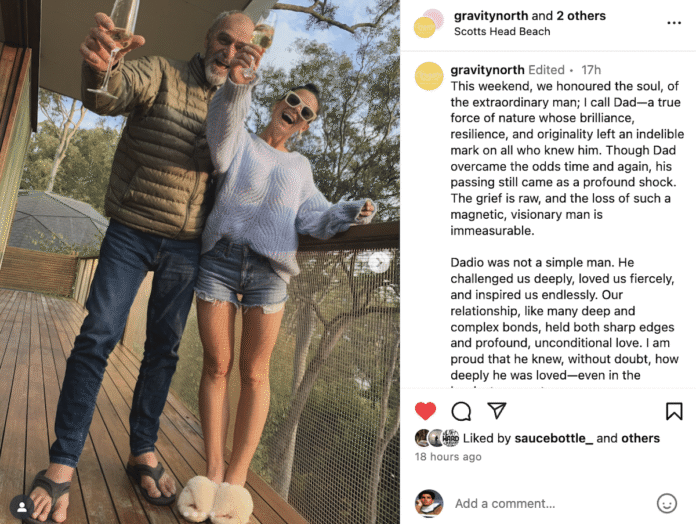The BeachGrit community forever enshrined in annals
U.S. legal history.
There have been new developments in the Lost v.
Lady Gaga lawsuit, and they are developments that I admittedly did
not foresee. I can’t believe that I am saying this, but BeachGrit
itself may be determinative of the outcome of Lost’s motion for a
preliminary injunction (read my prior article if you
want an explanation of what that is) that Lost filed a
few weeks back. Incredibly, my prior article and the below-the-line
comments were included in the briefing on both sides.
This is not a joke, and it should suffice to say that this is
absolutely wild.
Even wilder is the fact that it was Lost’s own attorneys who
submitted the prior article as an exhibit in support of the motion
and presumably thought that was a good idea. That particular
exhibit isn’t even specifically cited to within Lost’s memorandum
in support of the motion, so it begs the question as to why any
lawyer(s) in their right mind would submit an exhibit that
contained a bit of a blueprint for picking apart their own client’s
arguments. The general notion of “don’t introduce evidence that is
bad for your case” is How to Be Lawyer 101, so I’ve no idea why
Lost’s attorneys thought that making an issue of the prior article
would benefit their client in any way. Though I think that Lost is
going to lose this motion independent of that, decisions like this
are the stuff of legal malpractice lawsuits.
As one would expect, Lady Gaga’s attorneys absolutely pounced on
this within their opposition, and so much so that the prior article
is a key feature of Lady Gaga’s opposition brief, which even
includes a comment by the well-regarded Sup Braj embedded into the
brief itself.
Let’s unpack this with a little more specificity.
Within the opposition’s introduction (specifically page 1 at
lines 15 – 20), Lady Gaga’s attorneys argue with specific reference
to Lost’s own exhibit attaching the prior article as follows:
Lost cannot show that any actual consumer would be confused
enough to buy the wrong product—a fatal defect under any trademark
theory. Its own filing concedes that even surf enthusiasts, Lost’s
core market, understand there is no conceivable connection between
the brands:
“[N]ot even a moron in a hurry would confuse these two
brands.”
(Dkt. 15-4 at 170.)
Later within the brief, Lady Gaga’s attorneys even rely on our
community’s below-the-line commentary at page 2, lines 4 – 13 of
the opposition:
Lost has not identified a single customer who has been misled or
has declined to purchase Lost products due to any alleged
confusion. To the contrary, Lost’s own evidence confirms that even
within its core customer base, there is recognition that no
connection exists between Lost’s niche surf brand and Ms.
Germanotta’s globally recognized music and merchandise, as
demonstrated by one commentator’s sarcastic response to Lost’s
case:
(Dkt. 15-4 at 178.)
You heard it right. BeachGrit and its esteemed commentariat are
now highly relevant to what Lost has alleged to be a $100 million
case.
The remainder of Lady Gaga’s opposition hits all the same points
mentioned within my prior article in addition to making some First
Amendment fair use arguments, including the fact of the Norwegian
black metal band Mayhem’s existence since 1984. This inclusion
warms the cockles of my heart in particular, as I really think that
the Central District of California’s panel of judges need more
black metal in their lives.
Lost understandably tries to downplay these points within its
reply brief, responding by arguing that even if some of its core
customers aren’t confused, that doesn’t mean that the rest of the
customers won’t be. At page 12, lines 14 – 20 of Lost’s reply
brief, Lost’s attorneys argue as follows:
Lady Gaga argues that comments on articles produced by Lost
indicate that there are some consumers who are not confused. Dkt.
19 at 7, 17. However, the likelihood of confusion factor does not
require that all people be confused, but evaluates whether
confusion among consumers is likely, which Lost has certainly
demonstrated throughout its Motion. The likelihood of confusion is
not negated by the handful of people who will not be confused,
especially the ones commenting on a post after reading the article
about the dispute.
This is not particularly compelling given that Lost didn’t
submit any actual evidence of consumer confusion within its moving
papers. I would have just argued, “well, the author of this article
that we probably shouldn’t have attached as an exhibit states that
he’s a lawyer with trademark experience, so of course he’s not
going to be confused.”
Lost also responds to the black Metal Mayhem argument by
castigating the band, and indeed all of Norway, as a Norwegian band
that has no worldwide market or fanbase on the mere account of the
fact that they are from Norway. To wit, Lost’s attorneys argue as
follows at page 4, lines 1 – 7 of their reply brief:
The Norwegian heavy metal rock band called “Mayhem” may have
toured in the U.S. but certainly has a more prominent influence
outside the United States where it originated and its mark is
arguably unreadable. See Dkt. 19 at 5.
I’d be pissed if I were Norwegian, but then again, this probably
wouldn’t bother an actual Norwegian—they are a bit of an
unflappable lot. In any event, I can absolutely guarantee you that
there are more fans of the black metal band Mayhem, both worldwide
and within the United States, than there are Lost customers.
Right now, the Court has taken Lost’s motion “under submission,”
which means that it has decided that it does not need to hold a
hearing to hear oral argument on the motion and will decide
everything based on the papers. This is not good for Lost, because
having read the motion, the opposition, and the reply, I would be
shocked if Judge Olguin grants Lost’s motion.
I will keep my eye on the docket and report back once there is a
written order.
Regardless of the outcome though, this means that there is a
good chance that there will be a published United States Federal
Court decision specifically citing to BeachGrit and its community,
and in a lawsuit that is undeniably the most high profile lawsuit
involving surfing to date.
And if you don’t think that’s awesome, then you need to go to
awesome school.






